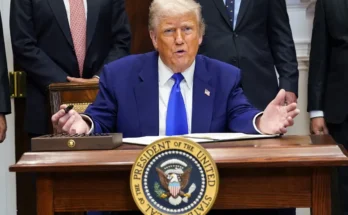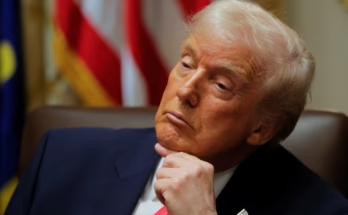Charlie Kirk, the 31-year-old conservative firebrand and founder of Turning Point USA, was shot dead while speaking at Utah Valley University, sending shockwaves through the political landscape. President Donald Trump, a close ally of Kirk, responded swiftly with a four-minute Oval Office video that mourned Kirk’s death but quickly pivoted to blame the “radical left” for inciting political violence. Trump’s statement, while emotionally charged, drew criticism for its lack of nuance and for politicizing a tragedy before any motive had been confirmed.
Rather than calling for unity, Trump’s rhetoric intensified division. He accused media and left-wing activists of demonizing conservatives, claiming such rhetoric directly led to Kirk’s assassination. Critics pointed out the irony in Trump’s condemnation, given his own history of inflammatory language, including calling immigrants “vermin” and labeling opponents “evil”. His vow to “bring down the force of government” on those he deemed responsible raised alarms about authoritarian overreach.
The suspect, Tyler Robinson, was arrested after a 33-hour manhunt. Authorities are still investigating the motive, with bullet casings found at the scene engraved with cryptic messages referencing video games and internet memes. Robinson’s roommate, who is transitioning, has cooperated with investigators, but no clear ideological link has been established4. Despite this, Trump and his allies—including Elon Musk and Laura Loomer—have pushed unverified claims of a politically motivated assassination.
Trump’s response was not limited to rhetoric. He ordered flags to be flown at half-staff, proposed awarding Kirk the Presidential Medal of Freedom, and announced plans to attend the funeral. These gestures, while honoring Kirk’s legacy, were overshadowed by Trump’s aggressive messaging. His decision to act as the primary messenger—bypassing law enforcement and official channels—underscored his desire to control the narrative and rally his base.
The tragedy has reignited debates about political violence and the role of incendiary speech in American discourse. While Kirk’s death is mourned across the spectrum, Trump’s reaction has polarized the nation further. His critics argue that instead of healing, he chose vengeance. As investigations continue, the country is left grappling with the consequences of rhetoric that blurs the line between mourning and mobilization.


